Social Emotional Learning Teaching Resources
Are you on the hunt for social emotional learning activities, printable PDFs, and more to bring SEL to life in your primary lessons this school year? The list of academic benefits of SEL instruction is a mile long, and the Teach Starter teacher team has created a robust collection of social and emotional learning resources made with teachers – and your students — in mind.
We've made planning your social-emotional learning lessons simple with printable SEL worksheets and digital social and emotional activities designed specifically for the needs of primary school students. Each resource in this collection has undergone rigorous review by the expert teachers on our team to make sure you'll be comfortable passing them out in the classroom or sending them home in a student's bag.
Pardon us if we're sharing something you already know (feel free to skip right to the social emotional learning activities!), but if you're new to incorporating SEL into your classroom, you may need a quick refresher! Read on for a guide from our teacher team!
What Is Social-Emotional Learning?
The most common social-emotional learning — or social and emotional learning — definition describes SEL as 'the process through which all young people and adults acquire and apply the knowledge, skills, and attitudes to develop healthy identities, manage emotions and achieve personal and collective goals, feel and show empathy for others, establish and maintain supportive relationships, and make responsible and caring decisions.'
It's a bit of a mouthful, but essentially social and emotional learning covers five core competencies:
- Self-Awareness
- Self-Management
- Social Awareness
- Relationship Skills
- Responsible Decision Making

Where Did Social Emotional Learning Come From?
Teachers have been teaching many of the skills that now fall under the social and emotional learning curriculum for centuries. It's always been our goal to help shape little minds to be caring, productive, and engaged citizens.
But the roots of what we now consider SEL can be traced back to a project in the New Haven, Connecticut schools in the United States where school administrators worked with Yale University researchers, parents, mental health workers and teachers to refocus not just the school's academic programs but their social ones too. The project started in the 1960s at two schools considered 'underperforming,' and by the 1980s, these same schools had academic scores that were at the top of American school rankings.
From there, the K-12 New Haven Social Development program was born, establishing a framework for incorporating social and emotional learning into the curriculum. Meanwhile, the non-profit Collaborative for Academic, Social, and Emotional Learning (CASEL) was born in 1994, helping to really bring the term 'social and emotional learning' into the zeitgeist.
CASEL was born out of the New Haven projects and helped shape the official definition of SEL listed above in 1997. It now works to expand SEL in schools around the globe.
Why Is Social-Emotional Learning Important?
Not sure you have time to fit all of this in alongside the standards that you're preparing students to meet? A solid social and emotional learning curriculum will help students with everything from managing emotions and developing coping skills to setting positive goals, engaging in positive relationships and solving problems effectively — all important competencies for your classroom.
The importance of SEL is hard to overstate, but here are a few core benefits:
- Promote mental health and well-being — Teaching social and emotional lessons in the classroom can help students develop the skills they need to manage their emotions, build positive relationships and cope with stress and challenges. It's a small step toward better mental health for all.
- Improve academic performance — There's strong research showing that students who have strong social and emotional skills are more likely to be engaged in learning and perform better academically.
- Create a positive classroom culture — Teaching social and emotional lessons can help create the kind of classroom culture where students feel safe, respected and supported — exactly what we all strive for!
- Prepare students for life after school — Social and emotional skills are essential for success beyond the classroom, be it at home in the immediate future or in uni or the workforce. Teaching these skills helps students be better equipped to handle the challenges they will face.
- Address specific social and emotional needs — Teaching social and emotional lessons can help address students' specific needs, such as building self-esteem, managing emotions and developing empathy for others. This can also help to create a more inclusive and equitable classroom where all students feel respected and valued. It's also good for your overall classroom management.

How to Teach Social and Emotional Lessons
There's little question that there's value in social and emotional learning, but how do you actually teach it? There's no simple answer here, as the exact methodology will differ based on year level, individual student needs and even your classroom dynamics!
That said, here are some strategies from our teacher team to keep in mind as you consider how you're incorporating the components of SEL in your instruction:
- Modelling — This is likely no surprise — we are our students' role models in the classroom for so much. Don't underestimate the value of your own active listening, displays of empathy and self-regulation, and other skills that are essential for your students' social and emotional development.
- Classroom Culture — Establishing a safe and supportive learning environment where students feel respected, valued and empowered goes a long way. Fostering a sense of community, promoting positive communication and encouraging collaboration and teamwork are all helping kids build their SEL quotient!
- Integration — Of course, you can (and should) have explicit instruction on SEL, but you can also incorporate SEL concepts into your core subject lessons. Discuss emotions related to a character in a book or working on group projects that require collaboration and communication. If you're teaching maths, emphasise the importance of perseverance and problem-solving skills. Teaching HAAS? Discuss empathy and the ability to understand different perspectives. It all comes together!
- Plus Plan
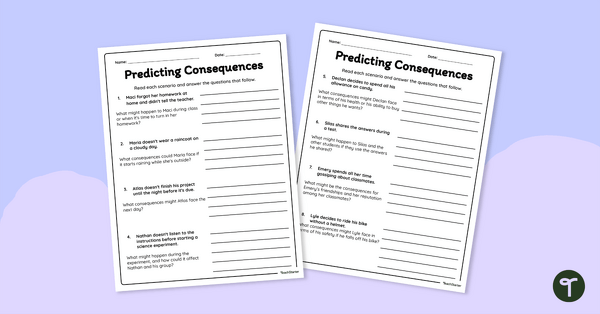
Predicting Consequences Worksheet
Help your students anticipate the consequences of their actions with this SEL worksheet.
- Plus Plan
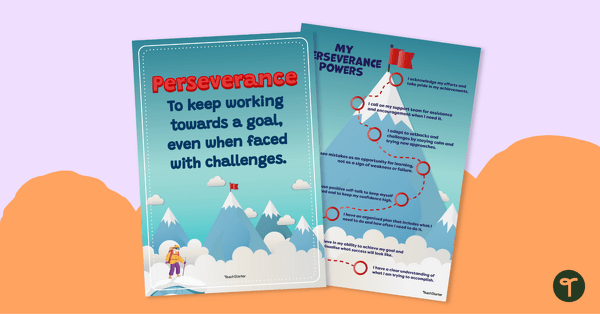
Perseverance Posters
Teach students the meaning of perseverance with these beautifully designed classroom posters based on a mountain climbing theme.
- Plus Plan
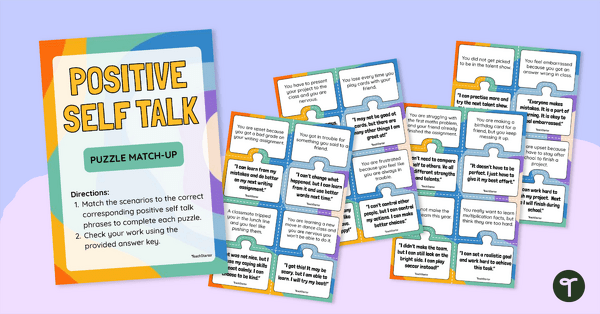
Positive Self Talk Match-Up
Teach your students how positive self talk in challenging situations can boost self-esteem with this match-up activity.
- Plus Plan
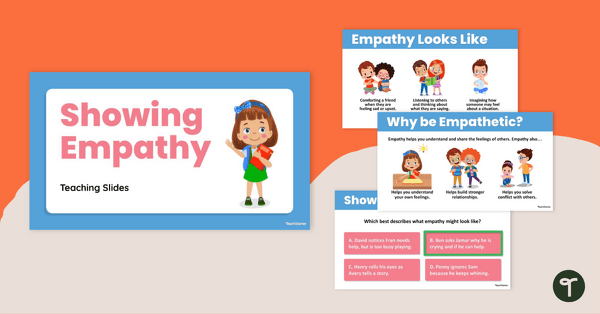
Showing Empathy Teaching Slides
Transform your classroom into a hub of empathy and kindness! Elevate your students’ social awareness with this set of SEL teaching slides.
- Plus Plan
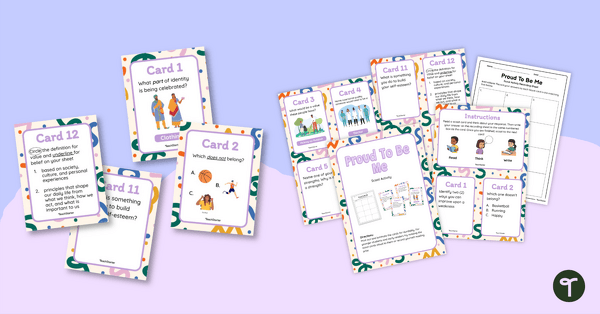
Proud to be Me Scoot Game
Engage students in identifying and describing personal identity while also promoting discussion with this active activity.
- Plus Plan
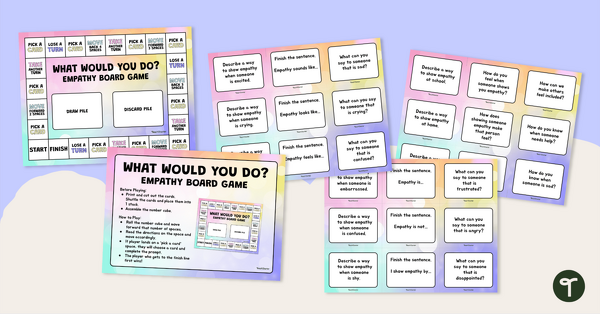
What Would You Do? Empathy Board Game
Challenge your students to think about the feelings of others and how to appropriately respond with the empathy board game.
- Plus Plan
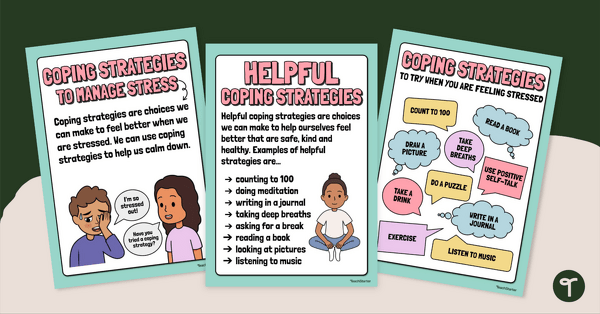
Managing Stress Coping Strategies Poster Set
Display this set of five posters in your classroom to equip students with actionable strategies for coping with stress.
- Plus Plan
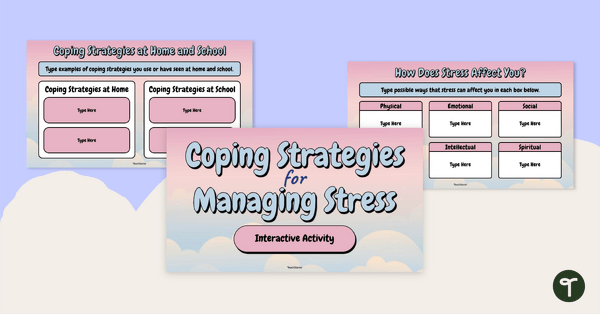
Managing Stress (Coping Strategies) Interactive Activity
Assign this interactive learning activity to your students to assess their knowledge of coping strategies for managing stress.
- Plus Plan
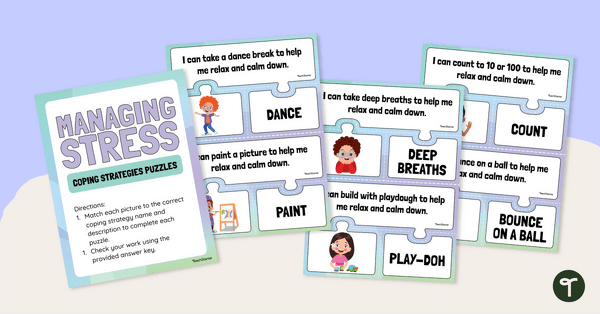
Managing Stress Coping Strategies Puzzle Match
Set your students up for success against stress with this calming puzzle activity where they will explore actionable strategies to manage stress!
- Plus Plan
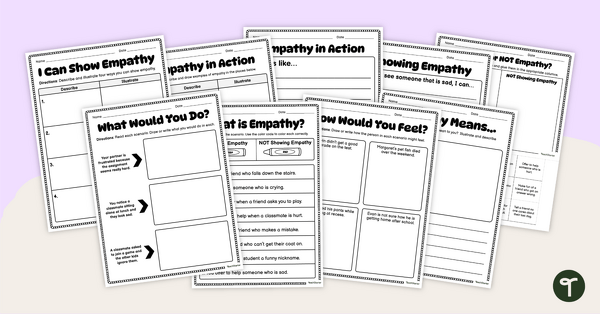
Empathy Worksheet Pack
Unlock a world of empathy with our SEL worksheet pack – download now and embark on a journey to nurture kindness and understanding with your students.
- Plus Plan
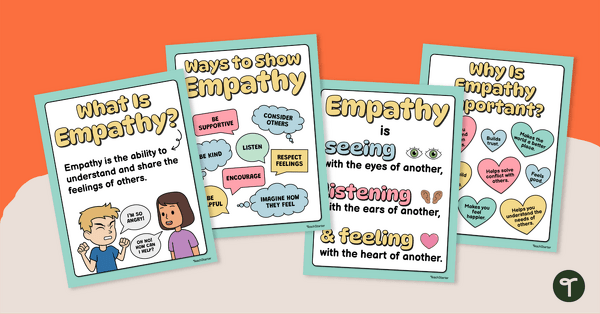
Empathy Poster Set
Enhance student understanding of empathy and why it is important with this set of 4 classroom posters.
- Plus Plan
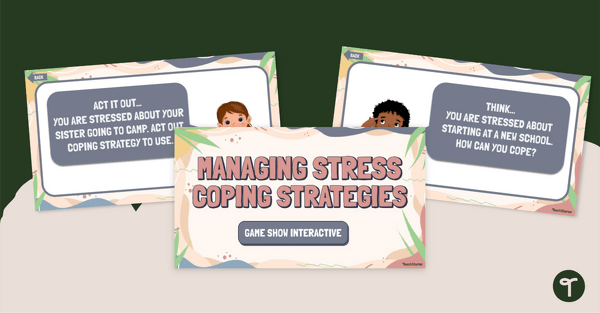
Managing Stress Game Show Interactive
Set up a gameshow in your classroom to reinforce your students’ ability to recognise and cope effectively with stress!
- Plus Plan
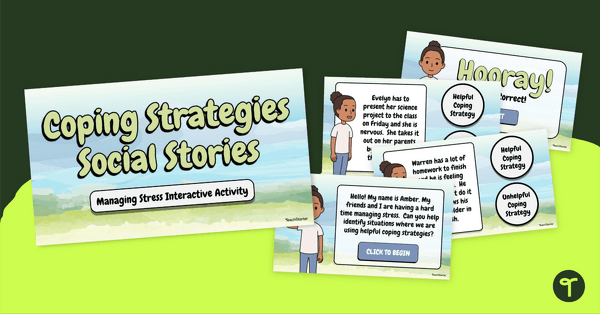
Managing Stress Social Stories Interactive Activity
Share this relaxing and calming interactive activity with your students to help them to differentiate between helpful and unhelpful strategies for coping with stress.
- Plus Plan
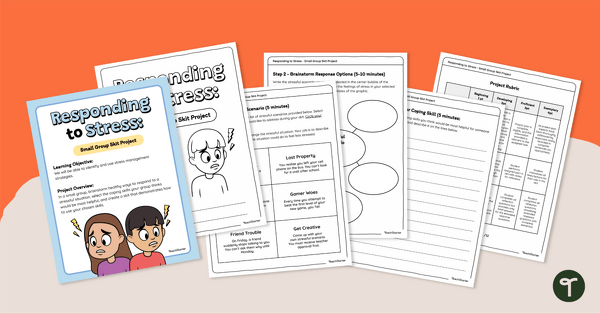
Responding to Stress: Small Group Skit Project
This small-group project lets students apply what they've learned about combatting stress by demonstrating practical coping skills.
- Plus Plan
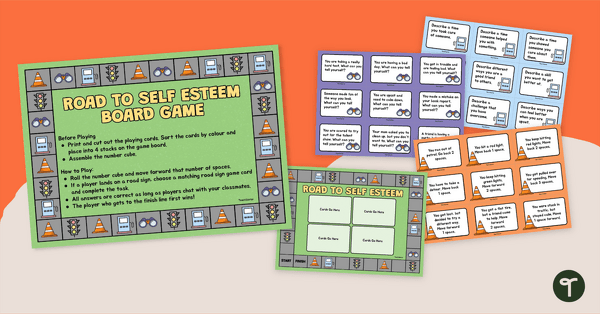
Road to High Self-Esteem Board Game
Help students understand what self-esteem is and how to boost their own self-esteem with this board game.
- Plus Plan
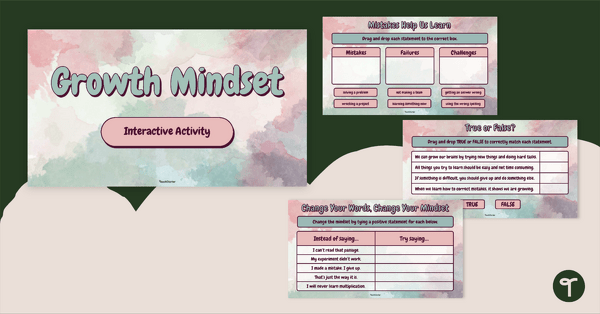
Growth Mindset Interactive Activity
Engage students in spending time looking at how to grow their growth mindset with this interactive activity.
- Plus Plan
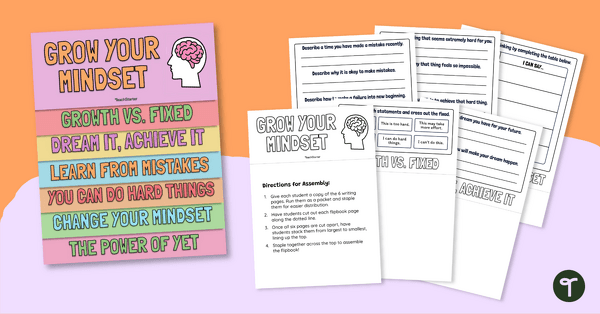
Growth Mindset Flipbook
Explore the topic of growing your mindset with your students using this engaging flipbook template.
- Plus Plan
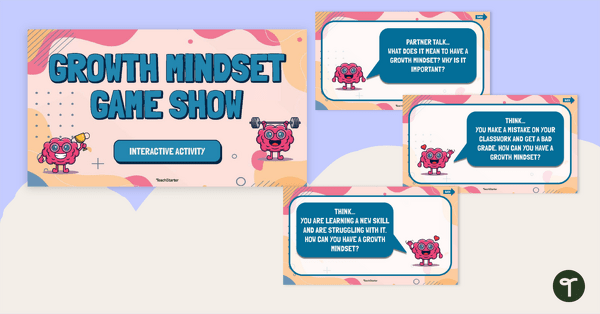
Growth Mindset Game Show Interactive Activity
Explore growth mindset with this interactive activity that encourages students to think, act, write, talk and decide on true or false for a set of questions.
- Plus Plan
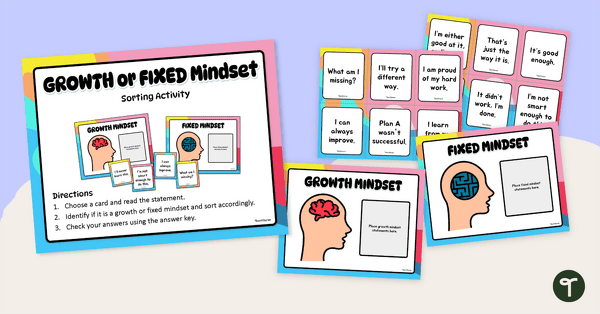
Growth or Fixed Mindset Sorting Activity
Help students understand the difference between a fixed mindset and a growth mindset with this sorting activity.
- Free Plan
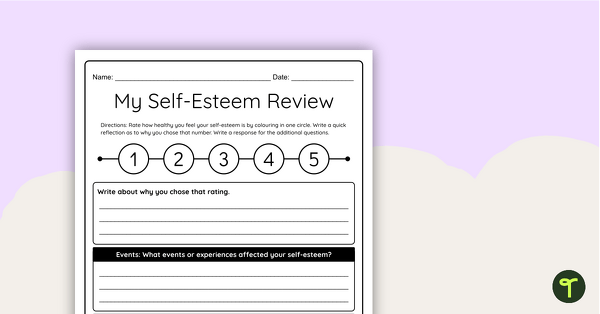
My Self-Esteem Review Template
Help students reflect on their own self esteem with this self-esteem rating template.
- Plus Plan
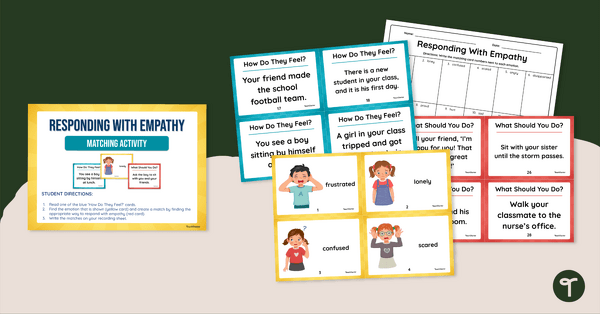
Responding With Empathy Matching Activity
Guide your students to identify emotions in others and select appropriate ways to respond with empathy with this matching activity.
- Plus Plan
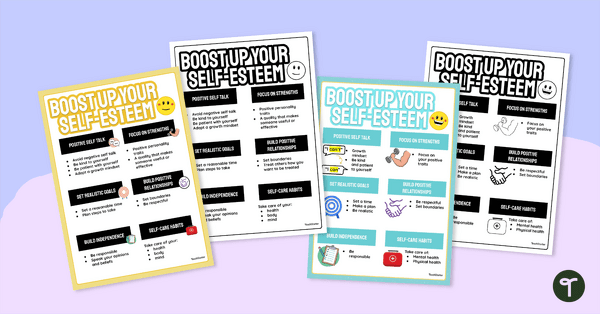
Building Self-Esteem Poster Set
Help your students learn how to boost their own self-esteem with this set of classroom posters.
- Plus Plan
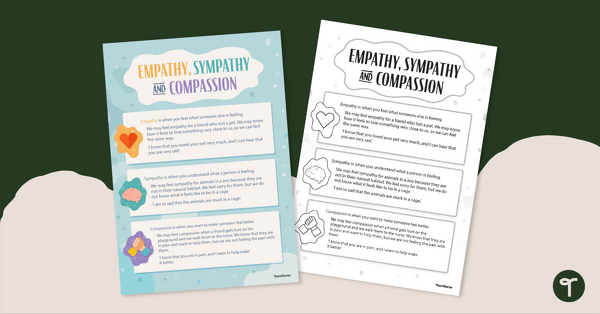
Empathy, Sympathy and Compassion Poster for the Classroom
Highlight the differences between empathy, sympathy and compassion with this printable poster.
- Plus Plan
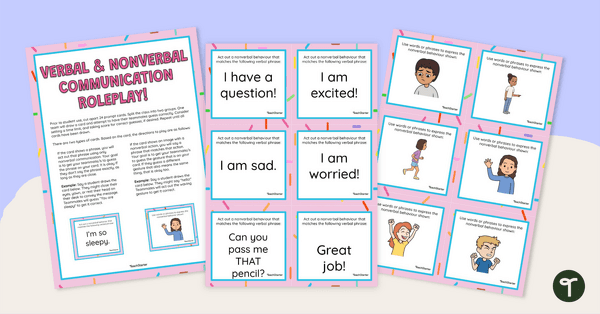
Verbal and Nonverbal Communication Roleplay Game
Use this active learning game to allow students to practise communication verbally and nonverbally, and interpret different verbal and nonverbal messages.
- Plus Plan

Chill Out! Calm Down Corner Poster
Welcome students into your class calm down corner with this cool classroom poster.
- Plus Plan
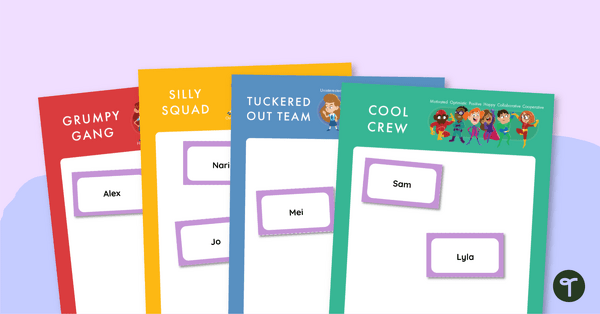
Emotional Self-Regulation Check-In Posters
Promote emotional awareness and self-regulation in your classroom with this daily mood check-in routine.
- Plus Plan
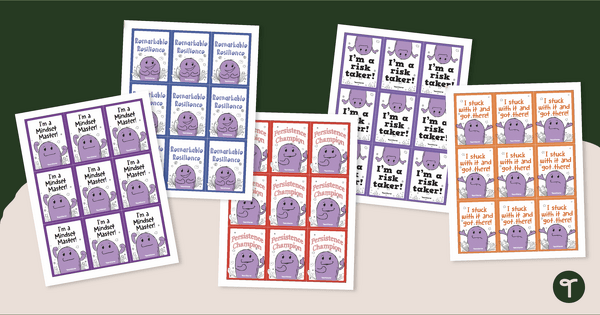
Growth Mindset Brag Tags
Celebrate students using a growth mindset with printable growth mindset brag tags!
- Plus Plan
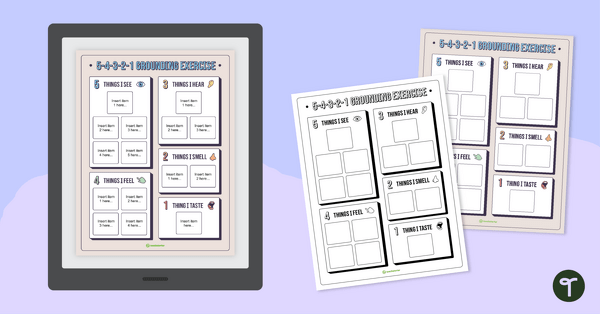
5-4-3-2-1 Grounding Exercise – Worksheet
De-escalate difficult situations with a printable grounding exercise.
- Plus Plan
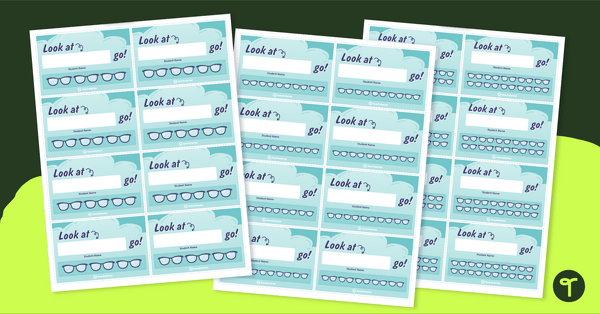
Behaviour Punch Card – Look at Me Go!
Promote and reward good behaviour with printable punch cards!
- Plus Plan
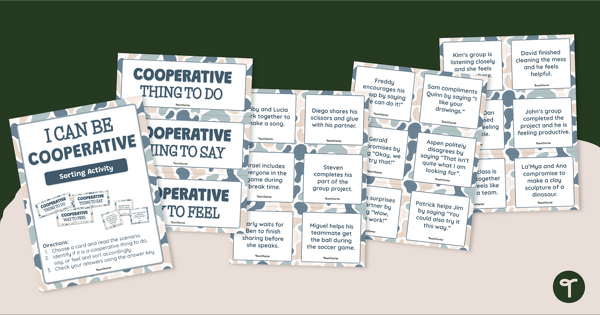
I Can Be Cooperative - Social Skills Sort
Practise personal and social skills to cooperate and interact respectfully with others with an engaging sorting activity.
- Plus Plan
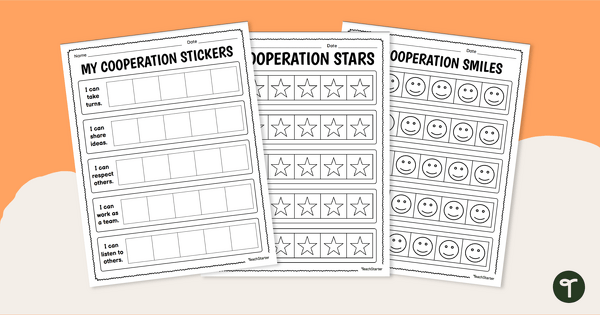
My Cooperation Sticker Chart
Promote and reward cooperative behaviour with a pack of printable cooperation sticker charts.
- Plus Plan
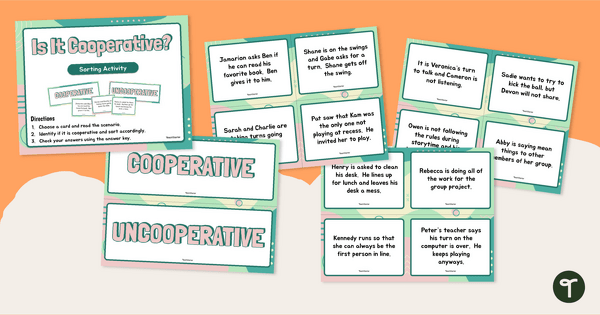
Is It Cooperative? Sorting Activity
Explore the difference between cooperative and non-cooperative behaviour with a sorting activity.
- Social Emotional Learning Templates
- Social Emotional Learning Worksheets
- Social Emotional Learning Posters
- Social Emotional Learning Games
- Social Emotional Learning Labels, Signs & Decorations
- Social Emotional Learning Teaching Presentations
- Social Emotional Learning for Preschool/Kindergarten
- Social Emotional Learning for Foundation Year
- Social Emotional Learning for Year 1
- Social Emotional Learning for Year 2
- Social Emotional Learning for Year 3
- Social Emotional Learning for Year 4
- Social Emotional Learning for Year 5
- Social Emotional Learning for Year 6
- Social Emotional Learning for Year 7